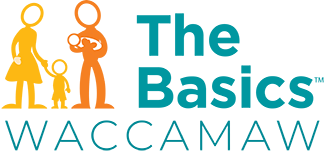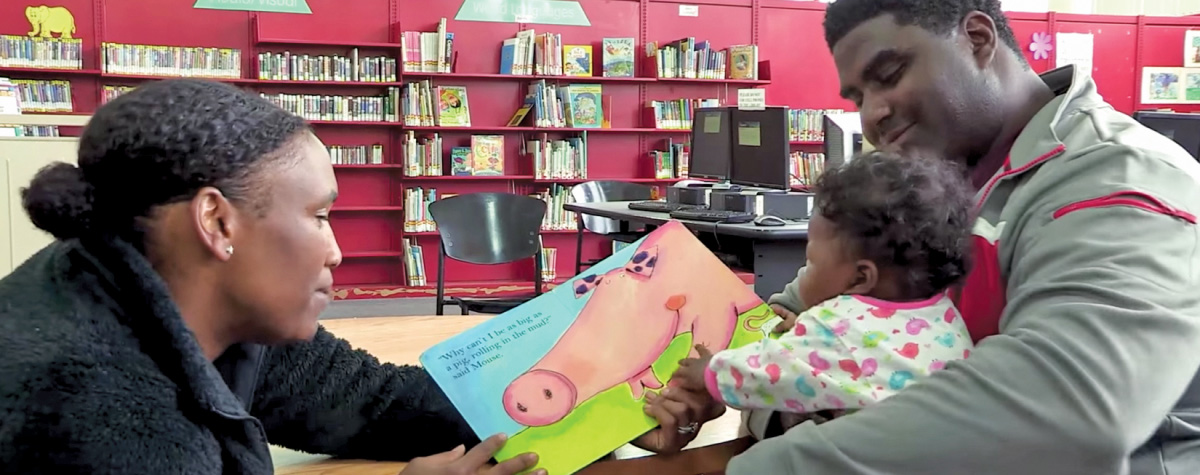The Basics Mission is to pursue both equity and excellence, by building community capacity to engage and support parents and other caregivers of young children in their roles as the most important influences in their children’s lives.
The Basics vision entails communities where family-friendly policies and practices are norms that infuse multiple sectors of an institutional ecosystem. Such an ecosystem engages with families intentionally and relentlessly to alleviate stress and relieve material hardship in support of vibrant caregiver-child relationships that include, among other resources, The Basics Principles.
In a Basics Community, The Basics Principles become daily routines for all types of families, including those isolated traditionally from the types of information and support that The Basics movement promotes.
In a Basics Community, inclusion begins at the child’s birth. Health and family support providers make new parents aware that The Basics Principles can help their child to thrive. They refer and connect new parents to welcoming sources of Basics-related information and support.
In a Basics Community, there is socio-ecological saturation. A local backbone coalition emerges to enlist and support organizations across multiple sectors to embrace The Basics movement. As a consequence, parents encounter The Basics at many places across their social ecology—at work, the library, in faith-based organizations, friends’ homes, medical offices, faith-based organizations, friends’ homes, medical offices, and more.
I’m delighted The Basics gives us in pediatrics an opportunity to really go much deeper about primary prevention with parents, to talk about the kind of capacities that young babies have, and what parents can do to facilitate that optimal brain development in young children.
Michael Yogman, MD
I’ve worked with The Basics and I think it’s very feasible to integrate it into pediatric office visits and think it’s a very positive experience for parents and families.
Cambridge, MA

In a Basics Community, parents receive information, social reinforcement, and reminders — these are the three gears of The Basics caregiver experience.
Information
In a Basics Community, there are easily accessible resources in community settings and online toolkits for parents as well as for providers. The toolkits include information about The Basics Principles and associated caregiving practices in videos, on downloadable tip sheets, and in a range of other forms. Additional modes of information sharing include social media, public broadcasting, and print publications.
Nudges / Reminders
In a Basics Community, caregivers receive SMS Text messaging. Parents, grandparents, and other caregivers enroll to receive up to five years of science-based facts and brain-building activity ideas delivered twice-weekly to their smartphones starting at the child’s birth. The messages are nudges—important reminders—to apply The Principles routinely.
Social Reinforcement
In a Basics Community, social reinforcement leverages the other gears and amplifies their impact. Trusted messengers in local service organizations, family members, friends, and even strangers direct people to learning experiences in Basics workshops and events, point them to online resources, and strike up conversations about The Basics Principles or the text messages or other topics related to early childhood thriving.
Get Involved
All this means that in a Basics Community, The Basics Principles become central to how the whole community prepares infants, toddlers, and preschoolers for school and for life.
In a Basics Community, what none of us can achieve alone, all of us can achieve together.
If you represent an organization:
Learn about our offerings and process for partnering with organizations on engaging families with The Basics.
If you are a parent or caregiver
Parents and caregivers play critical leadership roles in helping to spread The Basics in their communities. Reach out to learn about ways to join the movement.
No matter who you are
Live The Basics and share them with the parents and caregivers in your life.


